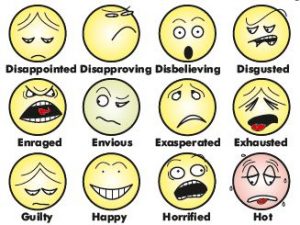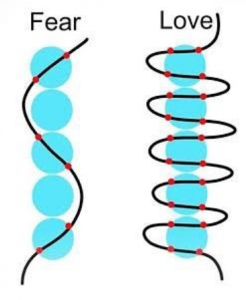According to the American Psychological Association, emotion referred to an intricate state of experiential, behavioural, psychological and physiological patterns responding to thoughts and stimulus. Emotions are subjective and profoundly influential to an individual. Depending on our biological makeup, emotions are biologically associated with the central nervous systems brought on by neurophysiological triggers from our cognition, learning style and conditioning orientation.
Unlike ‘feeling’, emotion can affect our moods and our body. This does not mean that having feeling for something or about something is any less significant. It is just that feeling refers to a self-perception of a specific emotion. Thus, you can have a feeling about emotion, and you can also have feelings about the way you feel; therefore, it originates in the mental construct. Whereas, emotions, on the other hand, is experiential, behavioural, psychological and physiological in nature. However, for the purpose of this blog, I will use emotion and feeling interchangeable.

The emotional intensity of an experience or event depends on your intrapsychic tendencies. You may have a proclivity of melancholy or cheerfulness. If your childhood environment were happy and nurturing, you will be more likely to have a cheerful disposition. But, if your childhood environment were hostile, less than ideal and traumatic, you will be more likely to be melancholy. However, this does not mean that you cannot change, break free from the cycle or that you should accept the past as something that will also happen in the future. Whatever the future will depend on your present. You can choose how to be, how to feel, and you can choose your emotions.
With volition, you can decide healthier, helpful and happier emotions. However, this does not mean that you simply dismiss, disregard or repressed the difficult emotions though. It is simply about being aware of emotions; recognise it, name it, feel it and express it. If you feel like crying, don’t let anyone tell you not to cry. If you feel anger, don’t let anyone tell you not to be angry. Feel the fear and move on. Keep calm and carry on. And make friend with your emotion, not foe.



How do you go about choosing healthier, helpful and happier emotions, you say?
- Recognising that you will have an emotion
To recognise an emotion, you simply need to acknowledge it. Realise its validity, its existence and legitimacy to manifest. When you notice that you will have an emotion about a situation or that you are about to have an emotional experience, see what is going on around you, observe the situation, listen to what is happening within and outside of the body.
- Name your emotion
 It often helps to name our emotions. This is because emotion has an energetic frequency. Love, for example, has the highest frequency at 528 Hz, whereas the frequency for fear is around 100 Hz.
It often helps to name our emotions. This is because emotion has an energetic frequency. Love, for example, has the highest frequency at 528 Hz, whereas the frequency for fear is around 100 Hz.
It is worth naming your emotions to bring awareness to the frequency thoughtforms. Naming the emotion gives legitimacy to the experiences that you are going through, especially if the intensity of the emotion is high. Being conscious of your emotions also means that you can then choose how you want to feel. Then you can check whether your physiological, biological, psychological and behaviour are in equal measure to the trigger or whether it is too excessive or too extreme for the situation. Thus, you will realise your response in connection to the feeling felt.
- Expressing your emotion
Since our emotions are our cue to what is going within ourselves. It makes sense to process them accordingly. A way to process emotion is to allow it to be expressed. That means you will need to allow yourself to feel the emotion. If you have not heard of the phase – check out these books, Feel the fear and do it anyway, Smile at Fear. It is once you realised your emotion that you can then express them healthily. Suppressing our emotions and feelings would be liking holding a buoy underwater. It will eventually surface, maybe tomorrow, the day after or the next time you are faced with a similar situation that triggers the same emotion. The problem then is that the emotional intensity has grown, doubled in size, which may lead to exaggerated behaviour or reaction. In simple term, let your emotion be, honour yourself and be brave by being with your emotions. They are simply a part of you that needs releasing, loving and let it be. If you can clear to love your emotion, you are on your way to loving yourself.
“I dont want to be at the mercy of my emotions. I want to use them, enjoy them, feel them and do not let them dominate me.” – Oscar Wilde.
Do you find this blog helpful? If you like this post, I love to hear from you on my Twitter Page.

